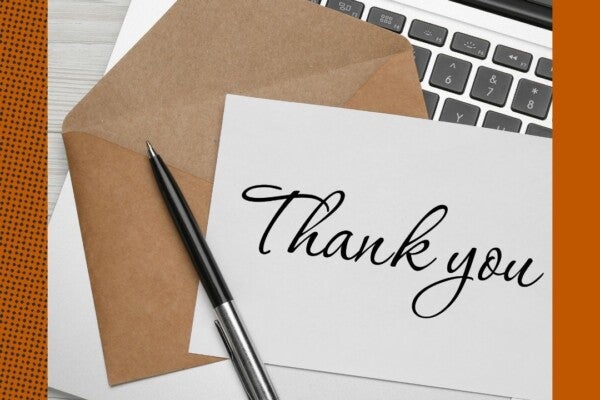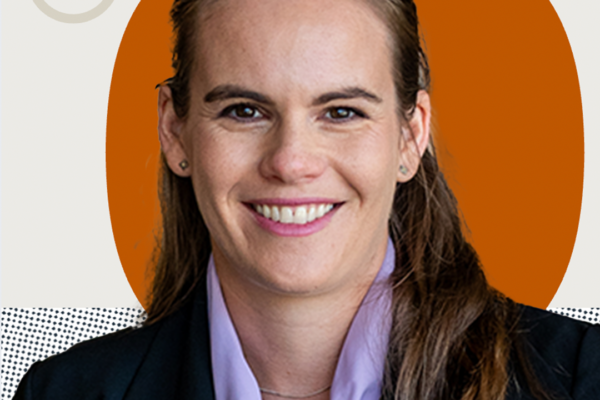Helping Texans Thrive
CEO Scott McClelland talks about how the iconic Texas grocery chain has led the state through the pandemic

By Suzanne Halliburton
The COVID-19 pandemic forced Scott McClelland, president of H-E-B Grocery Company, to focus on issues likes masks, toilet paper supply chains, meat shortages, bleach, and the challenge of curbside pickups.
And Texans were grateful that McClelland and H-E-B concentrated on some of the mundane details that we often take for granted. You walk into the grocery store and expect to see toilet paper on the shelves, fruit and vegetables in the produce aisle, and hamburger beef in the butcher fridge. The beloved chain of more than 390 stores throughout Texas and northern Mexico stayed open when most of the country was locked down in mid-March because of the COVID-19 pandemic.
McClelland has been with the company since 1990. That’s when he was hired as regional vice president in Central Texas. Before he was promoted to president, McClelland was in charge of the stores in the Houston area. He often appeared in commercials with local celebrities like Houston Texans star J.J. Watt and former Astro Craig Biggio.
H-E-B, which also includes high-end Central Market stores, now has blossomed into a $25 billion business. The chain emphasizes local and state-grown products. It’s able to keep prices low by doing high volume in larger stores.
On Dec. 9, McClelland discussed the topic of “serving the community in challenging times” in a virtual conversation with Evan Smith, the CEO of the Texas Tribune.
Here’s an excerpt of their conversation, edited for length and clarity.
Let’s start with the basics: How is H-E-B doing at this point in the pandemic?
There haven’t been days where the train has really rattled on the tracks. There was a day back in April, I was down in Corpus Christi. And we literally had no product in our produce department and the only item in frozen food was Spam Fries, which was a good indication that maybe we should discontinue Spam fries. But H-E-B certainly rebounded since that time. In general, I think the population has hung in there very well. They’ve certainly been flexible. For dinner on one night, you might have wanted to have beef, and then all there was was chicken. And so you bought the poultry instead. Today, as I sit here, I’ve got one major product supply issue that I’m dealing with, that’s paper towels. You can get your toilet paper, sanitizer, we have pretty much the majority of stuff that you would be looking at in the store.
Is the story true that you went so far as to do tabletop simulations of how you would implement a COVID-19 disaster plan in February?
“So our first discussions on coronavirus began in January as we started to see cases break out in Asia and in Europe, because of a lot of suppliers and relationships with other retailers in different countries. We began to reach out with them to see what is it that you’re experiencing. So that we could get a head start, we then broke into the tabletop exercise with about 35 people from different functions and began to break it down into how do you handle food safety, employee and customer safety? How do you handle supply chain. We went through all of these — ideally what we needed to do in each case now along the way.
And I think one of the things, you find this will be on my headstone is when I pass away: It’ll say he faked it til he made it. That’s what many of us did. One of the really big learnings that we got out of this was that collective intelligence of many is a lot better than having a few people at the top making all the decisions.
Did the pandemic force H-E-B to accelerate its curbside and home delivery programs?
I just read this morning that Kroger said that their sales were up 75% year over year. And ours are up significantly more than that. We had so many people wanting to get in and utilize (curbside). There were some days, especially back in April, when it was hard to find a slot. What is interesting, though, is that curbside still remains significantly more popular than home delivery. People would rather set an appointment to get in their car and come and pick it up. We offer home delivery, too, but by a ratio of four to one people prefer to come pick it up themselves. I guess it’s a little bit like the washing machine repairman. You don’t want to have to be stuck for a two-hour window waiting for someone to come as opposed to when you pick it up and give you a 30-minute window.
How did you deal with rules on customers wearing masks to come into your stores?
Without a doubt, this has been the single most difficult and challenging aspect of managing through COVID-19. You know, ideally, it would have been served up as, look, this is something you can do that’s patriotic, helping each other out.
If you start to think about the mask, which we won’t have to do forever. I dislike wearing a mask as much as the next person, but it’s a small sacrifice to make for other people to keep them safe. Something happened to me last week. A woman came in (an H-E-B). She didn’t have a mask. I said, “Ma’am, our policy is you need to wear a mask at H-E-B. She said, Oh, I don’t have one. I said not a problem. We have them right here, I’ll get you one. She said she wouldn’t wear it. People have really (divided) themselves on either end, because there’s one group that says, well, then (non-mask wearers) should have to leave the store, right then. On the other hand, we’ve also seen videos, whether it’s been on the news or on Twitter or social media of the violence that can sometimes ensue with a confrontation. And not having police in the store, or in many cases willing to come to the store to intervene, I can’t afford to put the people who work for us in physical harm’s way.
What is it about a community and their grocery store?
One is our involvement in the community to try to make Texas a better place to live. That’s our business. We contribute to the state and our vehicle for doing that is selling groceries. If we make Texas a better place to live in, Texas will thrive and we’ll sell more groceries.
About this Post
Share:


